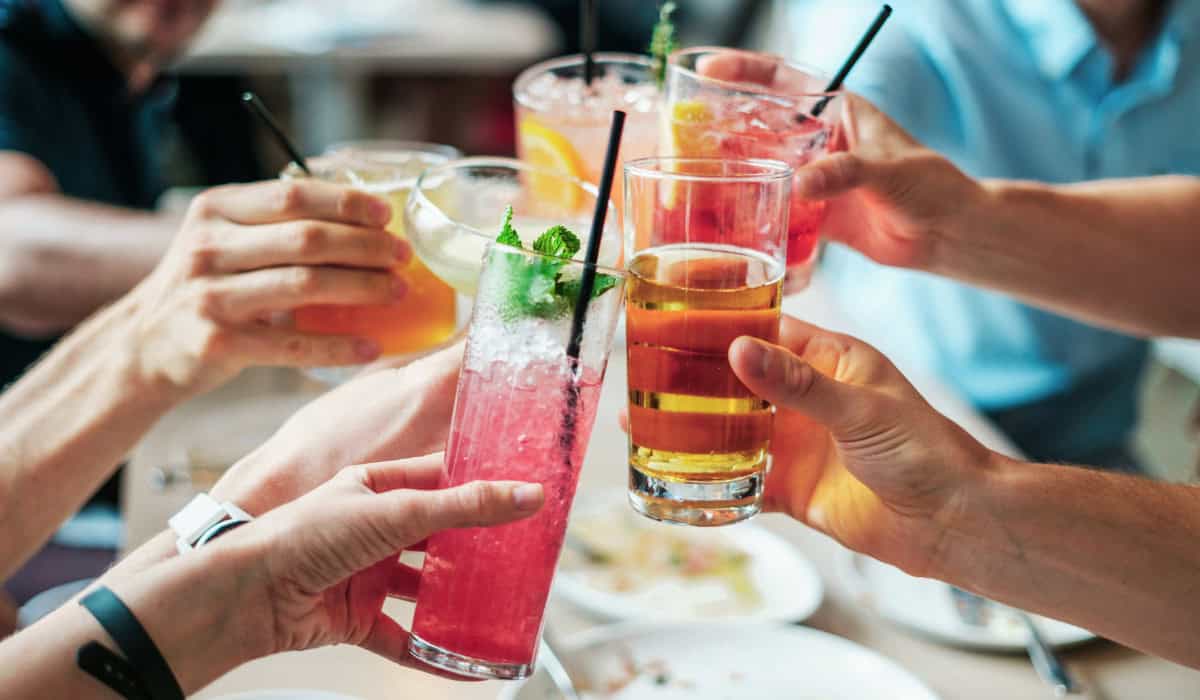
©Burst via Canva.com
Should Retailers Expand Their Nonalcoholic Drinks To Keep Up With the Sober Curious Trend?
In recent years, there has been an evident shift in consumer preferences toward healthier lifestyle choices and mindful consumption habits. This trend is particularly distinct with drinks, where an increasing number of people are opting for nonalcoholic options over traditional alcoholic beverages. With the rise of movements like Dry January and a growing interest in the sober curious lifestyle, the demand for nonalcoholic drinks is on the rise.
This continuing trend is backed by a survey carried out by NCSolutions in 2023 and again in 2024, which has shed light on the rising sober curious movement making its way across the United States. The findings reveal a prominent trend of Americans embracing drinking in moderation, with a significant 41% expressing the intention to reduce their alcohol consumption in 2024, marking a 7% increase compared to 2023.
According to NCSolutions, which surveyed over 1,000 Americans ages 21 and over, this shift is particularly prominent among younger generations, with Gen Z driving the trend. Sixty-one percent of Gen Z individuals voiced intentions to drink less in 2024, which is up from 40% in 2023. Millennials are also joining this movement, with almost half (49%) planning to take a step back from alcohol consumption, representing a 26% spike from the year before.
The motivations behind this trend are varied and reflect the changing values across society. Gen Zers expressed a mix of reasons for cutting back on their alcohol consumption in 2024, including financial savings, improved physical and mental health, lifestyle changes, and weight management.
Additionally, there seems to be a transition in America’s drinking culture overall. While drinking has historically been deeply rooted in American society, sentiments are changing. In 2023, 93% of respondents felt that “drinking alcohol is a big part of America’s culture,” according to NCSolutions. Now, the perception is changing, with only 84% still feeling this way, indicating a shift in societal norms surrounding alcohol consumption.
The concept of mindful drinking is also gaining prominence, with 34% of survey respondents referring to themselves as mindful drinkers. Mindful drinking is a conscious approach to alcohol consumption, which takes into consideration factors such as frequency, duration, and quantity of drinks consumed.
This shift toward mindful drinking habits and the curiosity around nonalcoholic beverage alternatives shows the evolution of consumer preferences in the retail market. As consumers prioritize health and wellness, they are increasingly seeking out options that align with their lifestyle choices.
Retailers and restaurants have an opportunity to cater to this growing market by expanding their range of nonalcoholic drinks. By adjusting to evolving consumer tastes and expanding their product offerings, businesses can tap into this trend and appeal to a broader customer base.
According to a Business Insider report from March, the CEO of the renowned hotel and social club chain Soho House revealed a significant surge in nonalcoholic drink sales during this year’s Dry January. The spike came despite members spending slightly less on drinks and food in the three months leading up to January compared to the previous year.
On an earnings call, Andrew Carnie, the chief executive officer of Soho House, said, “What we also saw in January was a much bigger spike in nonalcoholic beverage consumption, much more than we’ve ever seen before.”
Soho House is well-known for its classic cocktails, but it also serves a wide variety of nonalcoholic drinks in its 44 club locations, which range from London to Bangkok.
In February, data company CivicScience surveyed 1,500 U.S.-based adults over the age of 21 regarding their drinking habits and found that a quarter of those surveyed said they participated in Dry January this year.
According to ISWR, a beverage research company, the nonalcoholic drinks industry is anticipated to increase to nearly 4% of the overall alcohol market by 2027, which is expected to reach $545.8 billion this year.
In its survey, NCSolutions found that mocktails are expected to dominate the beverage space in 2024 as an emerging top option among Americans for nonalcoholic drinks. There is also a growing interest in THC and CBD-infused beverages. People are drawn to these alcohol-free options mainly out of curiosity regarding taste, due to an appreciation of their visual appeal, or because they perceive them as a healthier alternative to alcohol.
In line with NCSolution’s 2023 findings, which highlighted Gen Z’s preference for purpose-driven advertising, 34% of Gen Z respondents expressed a higher motivation to try new drink products marketed to align with the sober curious lifestyle in 2024. Celebrities and influencers also play a key role in driving Gen Z’s interest in nonalcoholic drinks. The survey shows that almost one in four (24%) Gen Zers have experimented with nonalcoholic beverages due to endorsements from celebrities or influencers such as Blake Lively, Bella Hadid, and Dwayne “The Rock” Johnson.
When it comes to identifying new nonalcoholic beverage options, social media paves the way for Gen Z as the most effective advertising channel, with almost half (45%) saying it is their main source of information. Internet searches and streaming TV follow, with 16% and 15% of respondents, respectively.
Discussion Questions
How can retailers and restaurants adapt their offerings to meet the increasing demand for nonalcoholic beverages and mindful consumption?
In what ways can companies leverage social media and targeted advertising to appeal to consumers interested in nonalcoholic and health-focused beverages?
What role can partnerships with influencers, celebrities, and wellness advocates play in promoting nonalcoholic beverages to target demographics like Gen Z and millennials?
